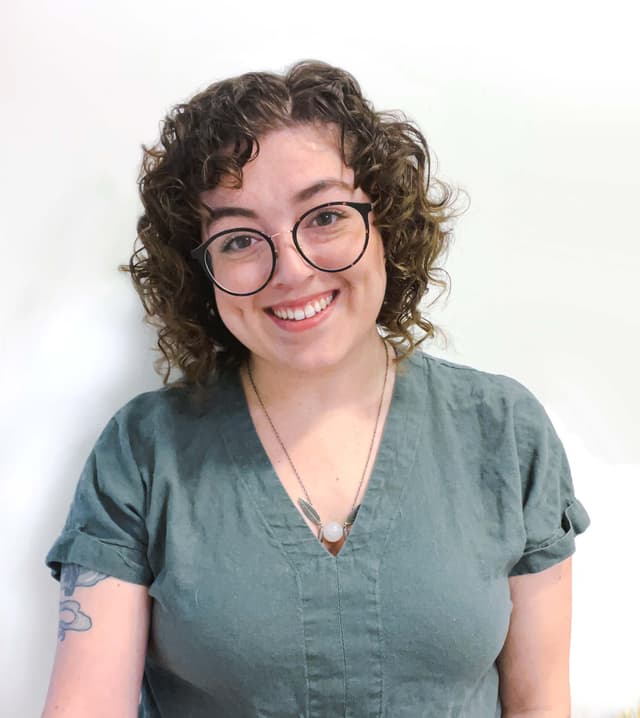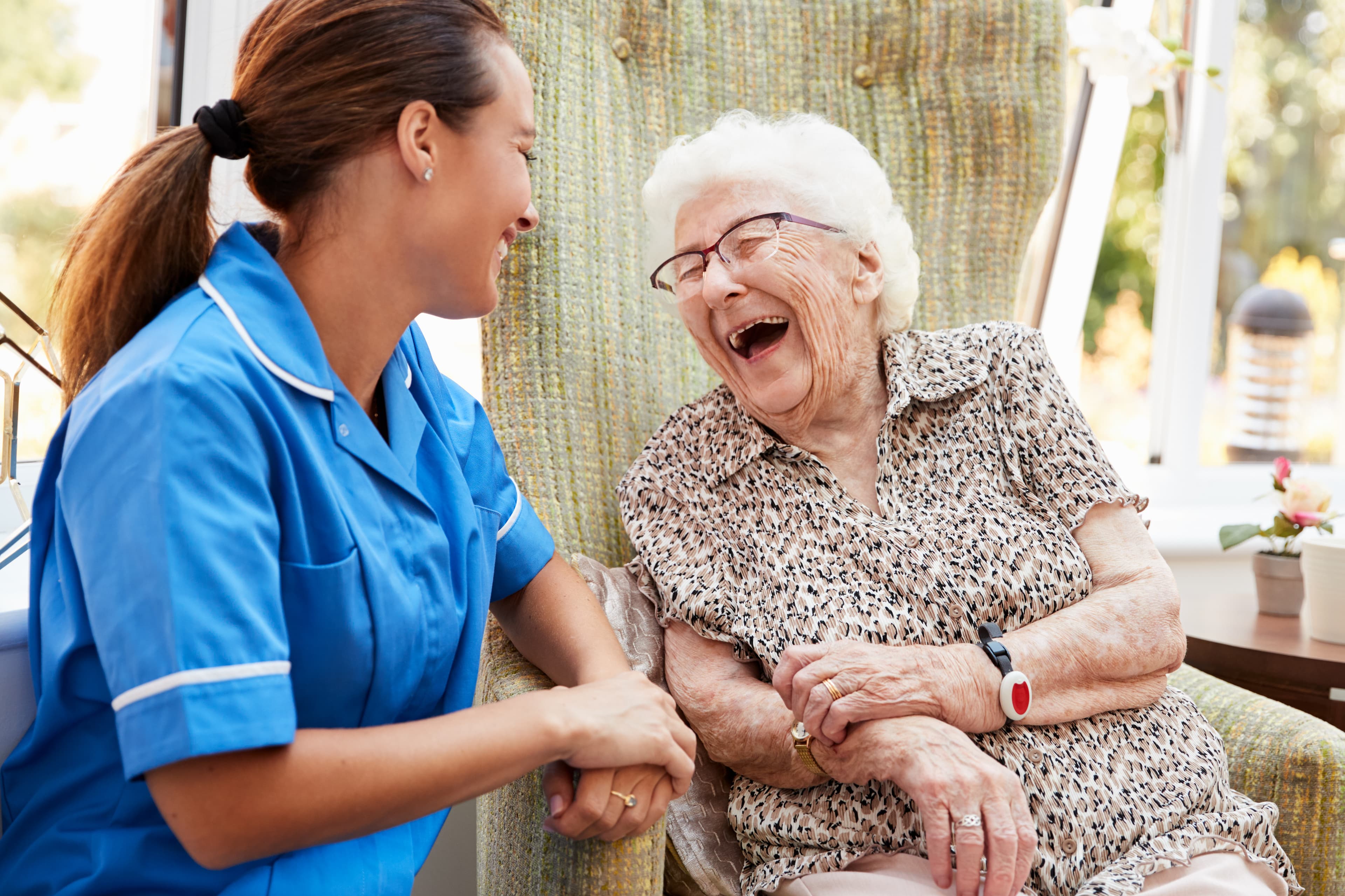If you are the primary caregiver for a loved one, you may wonder when you're supposed to work, shop, see friends, engage in your hobbies, or simply just rest and relax!
As a caregiver, it's incredibly important to find the right balance of providing safe, effective care for your loved one without neglecting your own needs. Adult daycare is a great solution for caregivers who need to take time away from the duties of caregiving during the day, and it can also be an enjoyable, enriching time for your loved one.
What is Adult Daycare?
Adult daycare programs are daily programs designed specifically for older adults who need assistance with the activities of daily living, who cannot safely be left home alone, or who want more social opportunities and structured activities in their day.
Most adult daycare programs have regular daytime business hours and are affiliated with larger care organizations, like nursing homes, home care organizations, and community senior service programs.
A 2017 review published in The Gerontologist reported evidence that older adults who attend adult daycare programs have a better quality of life, particularly older adults with Alzheimer's, dementia, or other cognitive impairments.
Adult day care may be right for your loved one if:
They cannot be left safely alone without supervision.
They need assistance with the activities of daily living.
They are not able to plan their own daily activities.
They are socially isolated or feel lonely.
There are generally three distinct types of adult day care options, all of which provide different levels of care - social day care, adult day health care, and Alzheimer's & dementia day care.
Benefits of Adult Daycare
Adult daycare programs offer an array of benefits for older adults and caregivers alike.
Adult daycare gives caregivers time off from caregiving to focus on their needs and tend to their day-to-day responsibilities with the peace of mind that their loved one is being well cared for.
Adult daycare provides older adults with social stimulation and engaging community activities.
Adult daycare is a safe place for older adults who need supervision, assistance with daily tasks, and medical care.
Adult daycare provides routine and structure for both older adults and caregivers.
The 3 Main Types of Adult Daycare
1. Social Daycare
Human beings are social creatures by nature, and that doesn't go away simply because we get older.
According to the National Academies of Science, Engineering, and Medicine, one-fourth of adults 65 and older are considered to be socially isolated, which increases the risk of heart disease, high blood pressure, depression, anxiety, cognitive decline, and many other physical and mental health issues.
Because of the life changes that come with aging - retirement, death of a spouse or friends, living alone, chronic illness, hearing loss, and loss of driver's license - older adults often find themselves feeling socially isolated.
Adult daycare programs focused on social care offer older adults a way to interact with peers and enjoy recreational activities outside the home while still receiving the supervision and assistance they need.
Types of social activities commonly offered at adult day care programs
Some adult daycare programs even offer multigenerational activities in which children and older adults participate in field trips, games, and other activities together. Research shows that both adults and children thrive in this shared setting and see an increase in health and well-being.
2. Adult Day Health Care
Adult Day Health Care is a type of medical and therapeutic daycare center that offers a higher level of care for older adults who need more comprehensive healthcare or have mobility difficulties. These programs are usually staffed by medical professionals, including nurses and physical therapists, and offer activities centered around the special needs of the adults in the program.
Adult Day Health Care programs give older adults experiencing physical and mental health issues due to chronic health conditions or mobility limitations the opportunity to engage in social activities with peers in a comfortable and safe setting.
Types of medical care commonly offered at adult day care programs
Physical therapy
Occupational therapy
Speech therapy
Medication management & dispensing
Specialized medical transportation
Incontinence care
Blood pressure monitoring
Hearing checks
Vision screening
Symptom management
3. Alzheimer's and Dementia Day Care
Alzheimer's and dementia day care centers provide the same type of social structure and medical care as other adult day care programs, specially curated for seniors with Alzheimer's, dementia, or other cognitive challenges.
Older adults in this type of adult daycare setting have the opportunity to be social and engage in activities that are safe and appropriate for their cognitive ability. Staff members will have special training in memory care. Services may be available specifically to address behavior management issues commonly associated with Alzheimer's and dementia, including wandering, incontinence, hallucinations, aggression, speech difficulties, etc.
Adult Day Care Costs
The cost of adult day care varies depending on location and level of service. Still, according to Genworth's Cost of Care database, the average rate for adult day care facilities in the United States is $80 per day. Depending on your location, you may see rates as low as $25 per day to over $100 per day.
Medicare or Medicaid and Adult Day Care
Medicare generally does not pay for the cost of adult day care; however, some Part C Medicare Advantage managed care plans cover limited adult day care as part of their covered home care services.
Medicare also partners with Medicaid to provide Program of All-Inclusive Care for the Elderly (PACE). PACE helps older adults who need nursing home-level care stay in their homes by providing them with community care options and medical resources.
Seniors enrolled in PACE may have some or all of their adult daycare costs covered. PACE is generally for low-income seniors who qualify for both Medicare and Medicaid
Who is eligible for PACE?
To qualify for PACE, you must meet the following requirements:
Be 55 or older
Live in the service area of a PACE organization
Need a nursing home level of care (as certified by your state)
Be able to live safely at home with help from PACE-provided services
Other Ways to Pay for Adult Day Care
Long-term health insurance plans may cover some or all costs, depending on the details of the policy
Veterans and their spouses can receive financial assistance through the U.S. Department of Veterans Affairs
Non-Medicaid state-sponsored programs (program details vary from state to state)
How to Choose an Adult Day Care Center
Start by assessing the needs of your loved one. What type of care will they need? Do they need assistance with the activities of daily living? Are they feeling socially isolated? What kinds of activities are they interested in? What kind of medical care do they require?
After determining the needs of your loved one, assess your needs as a caregiver. How much free time do you need? Are you looking for regular whole- or half-day care or just a few hours or a few days a week? Do you need help with transportation?
When you're ready to start looking for an adult daycare for your loved one, be prepared with questions that will help you determine what center will be the right fit.
The National Adult Day Services Association (NADSA) has a complete list of questions to ask and a checklist of things to look for when touring an adult day care center.
Click here to download NADSA's adult day care checklist.



